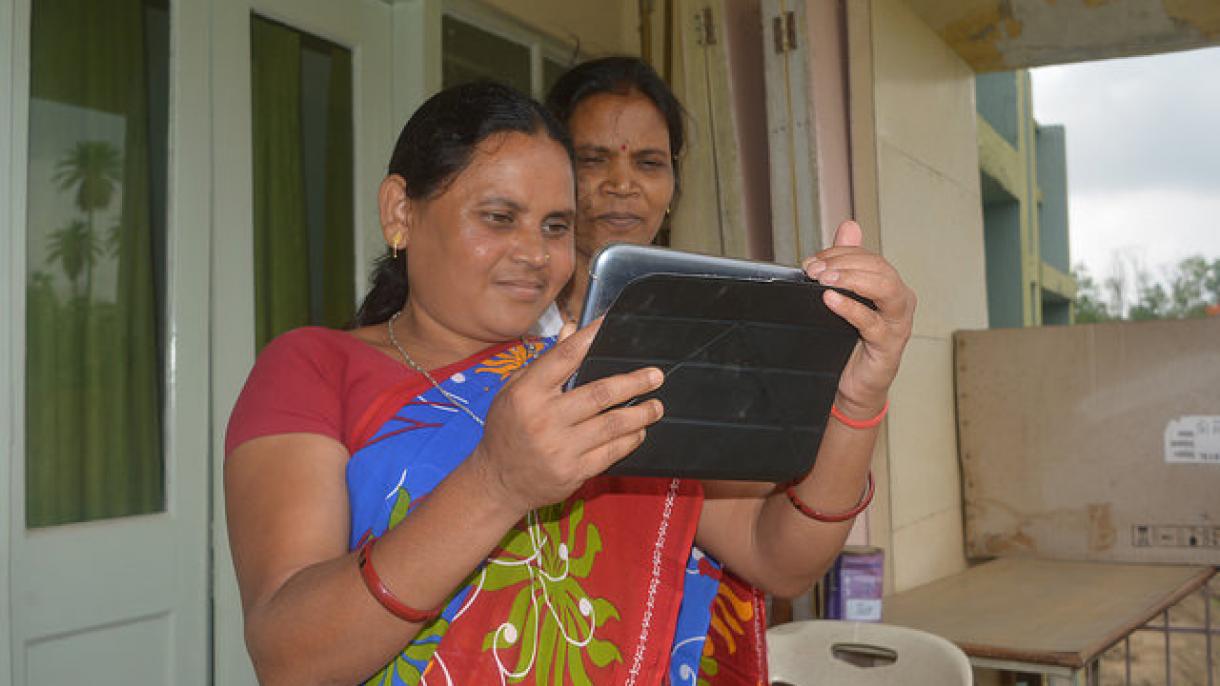
 This image is licensed under Creative Commons License.
This image is licensed under Creative Commons License.
- Tuesday, 10. October 2017 10:00 am – 1:00 pm Save in my calendar
Gender and Economic Policy Discussion Forum XXIV:
"Towards Bridging Digital India’s Gender Divide"
With an aim to “transform India into a digitally empowered society and knowledge economy”, the India government’s Digital India programme was launched on July 2nd, 2015 and has since then been prioritized in most policy agendas in India. Centered on three principal components namely, Digital Infrastructure as a Core Utility to Every Citizen, Governance and Services on Demand and Digital Empowerment of Citizens, the programme seeks to bring about inclusive growth by ensuring that several products and services along with government services are made available to citizens electronically with coverage extended to rural areas.
However, in spite of concerted efforts over the last two years, the digital gap in India is still vast, not to mention the gaping digital gender divide. This digital gender divide is largely attributed to the lack of access to digital resources and the absence of digital literacy skills (Subramanian, 2017). Several studies have shown that women’s access to mobile phones and/or the internet is significantly less as compared to men both in rural and urban India. This gender gap in access should be interpreted “as symptomatic of underlying structural inequalities – especially in education and income – between women and men; and refrain from naive digital divide analyses that will result in ineffectual 'give-access-get-empowerment' solutions” (Gurumurthy & Chami, 2014). Otherwise, “digital technologies can act as tools of control and surveillance, not empowerment” (Aneja & Mishra, 2017). Moreover, an understanding of the digital gender divide requires a deeper consideration of not just economic factors but the deeply entrenched social and cultural values that restrict and discourage women’s access to and use of digital technologies (Subramanian, 2017).
In light of this context, ISST, with the support of HBF proposes a discussion forum on ‘Towards Bridging Digital India’s Gender Divide’. This panel will examine in some detail the significance and effectiveness of the Digital India programme from a gender perspective. Some of the key concerns that the forum seeks to examine are as follows:
- Does a ‘digital India’ result in women’s increased agency and productivity?
- Will the ease of acquiring information and knowledge, better connected markets have an impact on women? Will women’s structural marginalization disadvantage digital equality?
- On the positive side, can women use digitization to change gender relations in their favour? Can the networking possibilities be used socially and politically, and in turn, enhance women’s position within home and outside.
- Or does it mean increased surveillance, control, towards strengthening of misogynistic forces and violence in the Indian context.
- How effective are the recourse mechanisms (if any) provided by the State /independent institutions/judiciary when rights are violated. How does India fare on this vis – a – vis other countries (Asia, Global North/South)?
References
Aneja, U., & Mishra, V. (2017). Digital India Is No Country for Women. Here’s Why. The Wire .
Gurumurthy, A., & Chami, N. (2014). Digital Technologies and Gender Justice in India: An analysis of key policy and programming concerns. IT for Change.
Subramanian, S. (2017, May 29). Why are there so few women on the Internet in India? Hindustan Times.
Date: 10th October, 2017 at 10 am to 1 pm
Venue: Casurina Hall, India Habitat Centre, Lodhi Road, New Delhi – 110 003
Information:
Shalini Yog
Deputy Director
E: shalini.yog@in.boell.org
T: +91 11 2685 4405
- Part of the series
- Gender and Economic Policy Discussion Forum
- Organizer
- External Event
